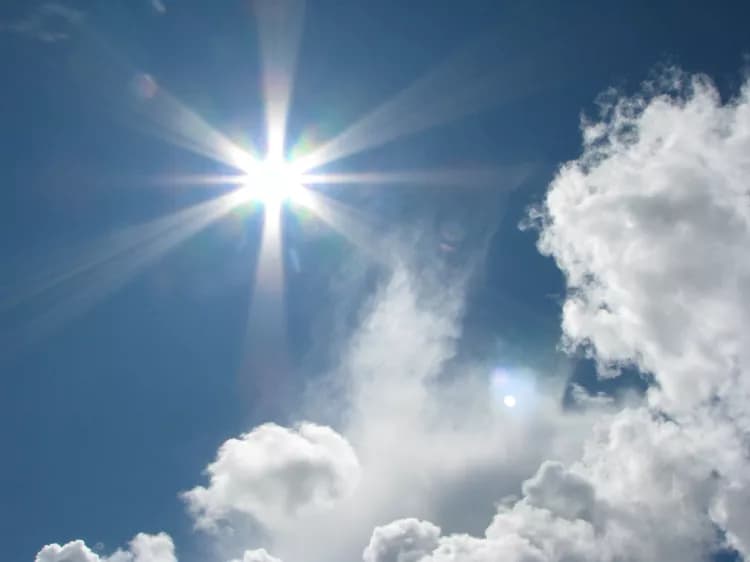
Study On Sun Protection Behavior, Skin Cancer Awareness
A large international survey on sun exposure behaviors and skin cancer detection found there are many imperfections and geographical inequalities in primary and secondary prevention of skin cancer. This information could help inform future awareness campaigns developed to address the global need to reduce mid- and long-term development of skin cancer.
The study was published in the Journal of the European Academy of Dermatology & Venereology by researchers from La Roche-Posay and the George Washington University (GW) Department of Dermatology. With nearly 20,000 participants around the world, this is one of the largest international studies on consumer sun protections and behaviors of its kind, yielding startling statistics.
Survey results indicate that 88 percent of those questioned were aware of the risks of developing skin cancer when exposed without protection to the sun. However, just 1 in 2 respondents has ever consulted a dermatologist for a mole screening and 4 in 10 people don't think to protect themselves from the sun outside of vacation.
"This is a global wake-up call," said Adam Friedman, M.D., senior author for the study and associate professor of dermatology at the GW School of Medicine and Health Sciences. "There are still a lot of gaps in people not only actively monitoring for cancer, but preventing it."
The survey included men and women in 23 countries, ages 16-65, and was primarily conducted online. The questionnaire collected data regarding demographics, sun exposure, behaviors regarding prevention and tanning, risk knowledge, self-examination, medical advice seeking, and social attitude.
According to the data, using sunscreen and wearing sunglasses were the most frequent preventive measures. Education level, as well as gender, influenced the degree of sun protection: A higher level of education corresponded to a higher level of sun protection. Self-examination and consultation with a dermatologist were positively correlated with socioeconomic status and education level, as well. Women were found to be more knowledgeable than men regarding risk factors and the appropriate measures and resources to prevent and monitor skin cancer.
There were also many regional differences. Inhabitants of countries in Southern and Western Europe were more likely than the average respondent to use sunscreen. In Latin America, sun avoidance was much more common. In Australia, respondents had a more diverse set of protective behaviors, which included trying to stay in the shade, wearing a hat, or wearing protective clothing. Those in Australia, Ireland, Brazil, and Greece were remarkably more informed than other survey participants about the risks and early signs of skin cancer. Conversely, those from Mexico, Russia, and Italy were among the least informed. Overall, Australia and Southern Europe exhibited higher rates of preventive behavior than average.
In North America, the survey included 1,005 respondents in Canada and 1,000 in the U.S. In terms of screening for melanoma, Americans perform slightly better than the average for other countries. Eighteen percent of U.S. respondents have their moles checked by a dermatologist at least once a year compared the country average of 11 percent. However, preventative protection habits in the U.S. are in line with the average observed, indicating more education on sun safety is needed.
While the surveyed populations were aware of risks related to sun exposure, individual risk factors, such as skin type and the size of moles, were not well known by respondents. The data uncovered that self-examination and medical seeking is frequently underused, and early signs of skin cancer that should prompt medical consultation are not universally known.
According to Sophie Seite, scientific director for La Roche-Posay, "the current survey provides new insights, and data suggests that messaging needs to be specifically targeted for at-risk demographics (especially by age, gender, skin type, and even country). That is why we, at La Roche-Posay, are committed to offering educational campaigns, like Skin Checker, and practical tools, like the My UV Patch, free of charge to the public in order to effectuate change and improve people's quality of life, especially for implicated and at-risk groups like women and children."
Materials provided by George Washington University. Note: Content may be edited for style and length.
Disclaimer: DoveMed is not responsible for the accuracy of the adapted version of news releases posted to DoveMed by contributing universities and institutions.
Primary Resource:
Seite, S., Del Marmol, V., Moyal, D., & Friedman, A. (2017). Public primary and secondary skin cancer prevention, perceptions and knowledge: An international cross‐sectional survey. Journal of the European Academy of Dermatology and Venereology. DOI: 10.1111/jdv.14104
Related Articles
Test Your Knowledge
Asked by users
Related Centers
Related Specialties
Related Physicians
Related Procedures
Related Resources
Join DoveHubs
and connect with fellow professionals

0 Comments
Please log in to post a comment.